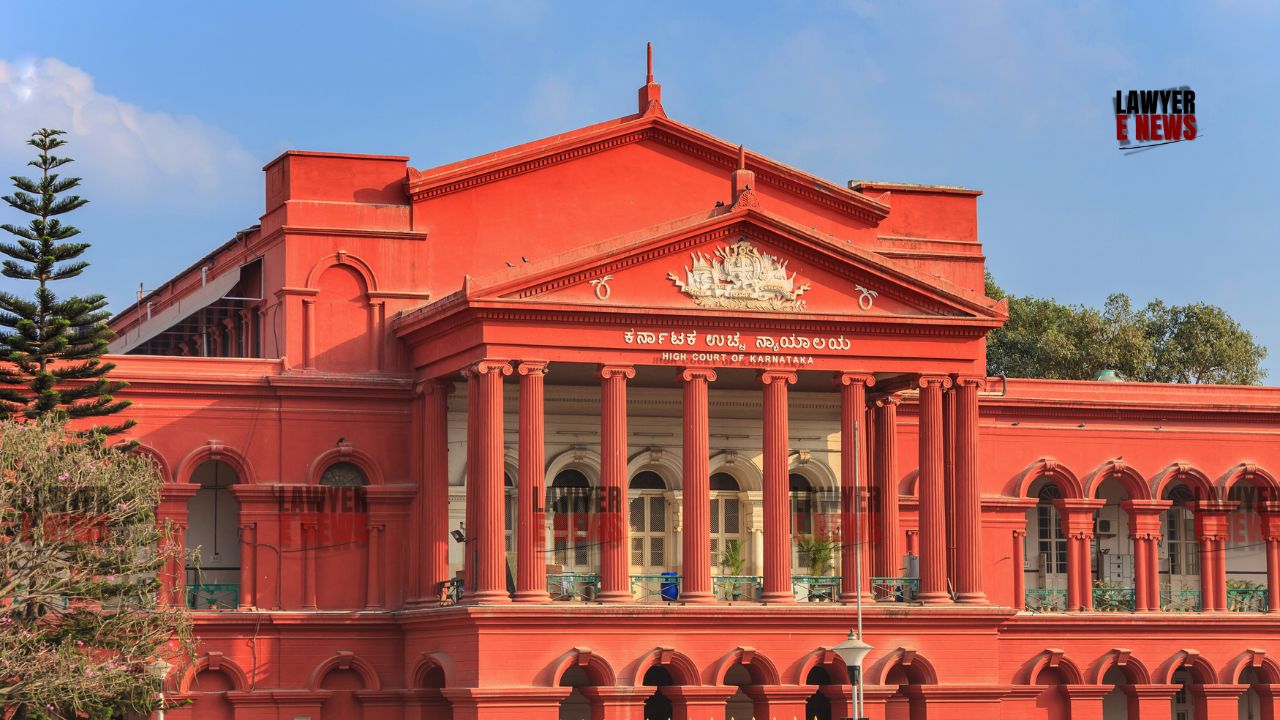-
by Admin
15 February 2026 5:01 PM



Presence of Mens Rea Essential for Abetment; Mere Quarrels or Refusal to Repay Cannot Lead to Conviction for Abetment to Suicide - Karnataka High Court dismissed an appeal challenging the acquittal of the respondent-accused under Section 306 of the Indian Penal Code, 1860 (IPC). The court upheld the Sessions Court’s judgment, observing that mere non-return of money and gold ornaments, coupled with a quarrel, does not constitute "abetment to suicide" in the absence of instigation or mens rea.
Justice Shivashankar Amarannavar emphasized that for a conviction under Section 306 IPC, there must be clear evidence of instigation or active provocation. The judgment reaffirms the principles laid down by the Supreme Court in multiple precedents on abetment to suicide.
The appellant, Sridhar, filed the appeal challenging the judgment of acquittal dated 15 May 2013 passed by the Fast Track Court – II, Chinthamani. The trial court acquitted the respondent-accused, Shri Manjunatha (son of Munivenkatappa), of charges under Section 306 IPC.
The case arose from a complaint by the appellant, whose sister, Varalakshmi, committed suicide by hanging on 29 May 2011. The appellant alleged that the respondent had taken money and gold ornaments from the deceased under the pretext of securing bail for her husband but refused to return them. This refusal, accompanied by a quarrel, allegedly led Varalakshmi to take her life.
Definition of Abetment and Mens Rea under Section 306 IPC
The court referred to Section 107 IPC, which defines "abetment of a thing" as:
Instigation to do the act.
Engaging in a conspiracy for the act.
Intentionally aiding the act by any act or omission.
The court emphasized the necessity of mens rea (intention) for abetment, as laid down by the Supreme Court in cases like Sanju alias Sanjay Singh Sengar v. State of M.P. (2002) 5 SCC 371, Chitresh Kumar Chopra v. State (Govt. of NCT of Delhi) (2009) 16 SCC 605, and M. Mohan v. State (2011) 3 SCC 626.
The court observed: "Without a positive act on the part of the accused to instigate or aid in committing suicide, conviction cannot be sustained. The accused’s intention to provoke, incite, or encourage the deceased to commit suicide must be established beyond doubt."
Justice Amarannavar noted that the evidence presented by the prosecution—oral testimony of witnesses and the death note—failed to establish that the respondent actively instigated or intended to provoke Varalakshmi to commit suicide.
The court observed: "The quarrel regarding the return of money and ornaments, by itself, does not amount to abetment. Suicide was not the only option available to the deceased. The absence of any direct or active instigation by the accused precludes a conviction under Section 306 IPC."
The trial court relied on a death note (Ex.P2) allegedly left by the deceased. However, the High Court found that the note’s authenticity was unproven, as the handwriting was not verified to belong to the deceased. While the reliance on the death note was improper, the High Court held that the remaining evidence independently supported the acquittal.
The High Court dismissed the appeal, upholding the acquittal of the respondent-accused. It concluded:
"There is no evidence to show that the respondent-accused intended to drive the deceased to commit suicide. Mere refusal to return money and gold ornaments or a quarrel does not amount to abetment under Section 306 IPC."
The court highlighted the necessity of looking at the subjective mental state of the deceased and reiterated that suicidal ideation is complex and multifaceted.
The Karnataka High Court’s decision underscores the importance of mens rea and instigation in cases under Section 306 IPC. Mere disputes, financial difficulties, or quarrels, without a clear intent to provoke suicide, cannot lead to a conviction for abetment.
Date of Decision: 16 January 2025
